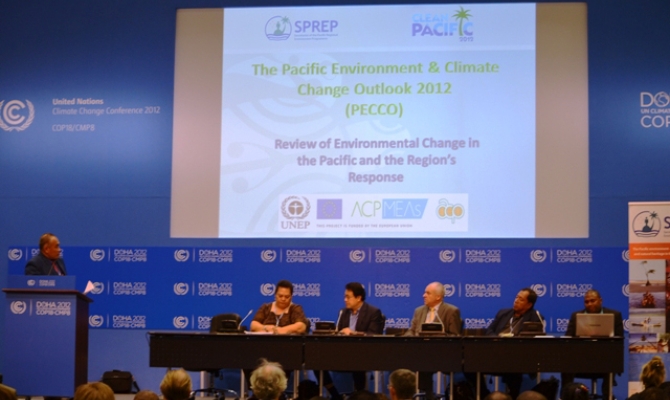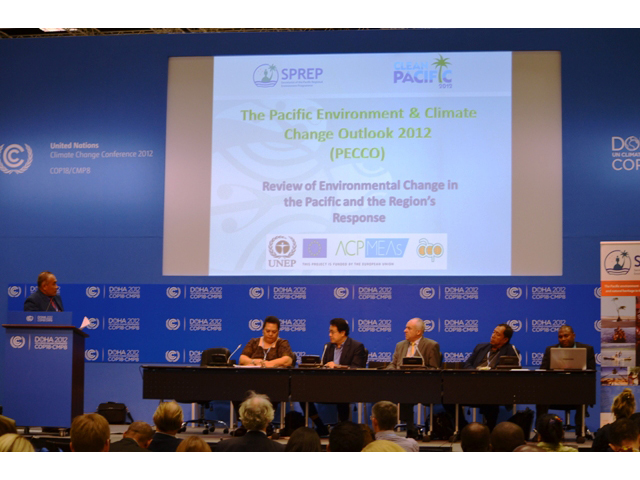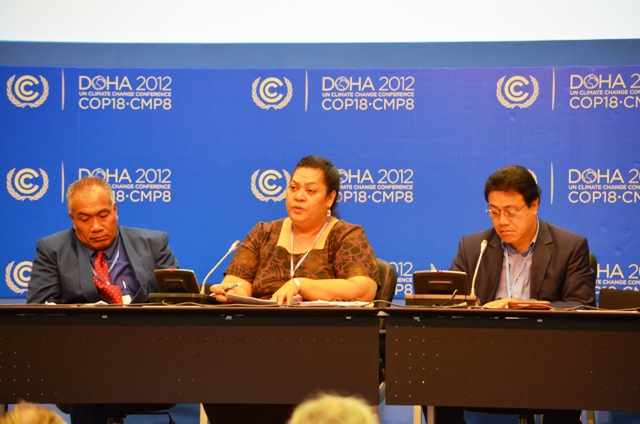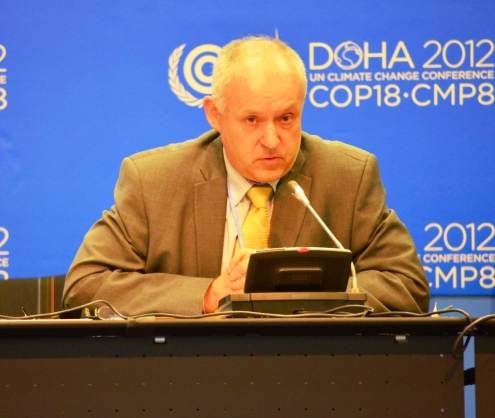
28 November 2012, Doha, Qatar - An increasing population, economic vulnerability, exploitation of natural resources, energy consumption and climate variability and change are the main drivers of negative change in the Pacific environment. These are outlined in the Pacific Environment and Climate Change Outlook, launched at the UN climate talks in Doha, Qatar this week.

The experiences of over 500 communities from 22 pacific island countries and territories are included in this report. It examines national and regional progress and experience in implementing sustainable development and addressing environmental challenges over the past 20 years.
Climate change not only has direct impacts on people and the environment, but is exacerbating pressures on the Pacific Island ecosystems and natural resources caused by unsustainable consumption and production.
The livelihoods of 10 million people are becoming increasingly vulnerable with the low-lying islands in particular facing projected losses of up to 18 per cent of GDP due to climate change.

"The findings of the report emphasise more than ever the need to "raise the bar" through collective actions that address the regions environmental and development needs at all levels," presented Dr Netatua Pelesikoti at the Pacific side event which launched the report.
"It underlines the critical role of strong national and community level institutions and the importance of effective individual and collective involvement in all aspects of environmental action."
The Pacific Environment and Climate Change Outlook was developed by the Secretariat of the Pacific Regional Environment Programme (SPREP) in collaboration with the United Nations Environment Programme and other partners. Closer collaboration between SPREP and UNEP is the basis of a Memorandum of Understanding signed in October.

"This report provides concrete evidence of how the livelihoods, food and freshwater resources of Pacific Islanders are under threat, and underlines that the Pacific is at the front-line in the battle to cope and adapt to climate change," said Dr Volodymyr Demkine of UNEP at the launch of the Report.
The report also highlights a number of successful legal, policy and planning initiatives that have had a significant positive impact on the environment.
These include the development of community conservation areas, in particular networks of locally managed marine areas; the establishment of national waste reduction and recycling measures; the conservation of energy and water resources; the development of renewable energy sources; the promotion of tree planting and reforestation programs; and the mainstreaming of environmental considerations into development plans.
"UNEP applauds SPREP, the Pacific Island Countries and Territories and regional partners for their collaboration and endorsement of this assessment, and for already beginning to act on the findings. We look forward to our strengthened collaboration that will benefit the global as well as regional environment and improve the well-being of Pacific Islanders," presented Dr Demkine.
The report is to be made available on the SPREP website.